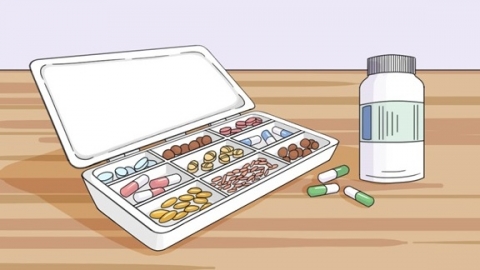What are the effects and side effects of headache powder?
Generally speaking, headache powder refers to Acetaminophen Caffeine and Aspirin Powder, which has effects including relieving headaches, reducing joint pain, alleviating toothaches, easing dysmenorrhea, lowering body temperature, etc. Side effects include gastrointestinal discomfort, allergic reactions, liver and kidney function damage, blood system impairment, and harm to the respiratory system. It is recommended to take the medication as directed by a physician. Detailed analysis is as follows:

I. Efficacy of Acetaminophen Caffeine and Aspirin Powder
1. Relieves Headaches
Acetaminophen Caffeine and Aspirin Powder can effectively alleviate various types of headaches, including tension-type headaches and vascular headaches. It achieves analgesic effects by inhibiting the synthesis of pain-inducing substances and reducing the sensitivity of pain receptors.
2. Reduces Joint Pain
Acetaminophen Caffeine and Aspirin Powder has anti-inflammatory and analgesic effects on mild to moderate joint pain caused by arthritis or joint strain, helping to improve joint mobility and alleviate activity limitations caused by pain.
3. Alleviates Toothaches
This medication helps relieve toothaches caused by pulpitis, apical periodontitis, and pericoronitis by inhibiting inflammatory responses in the surrounding dental tissues and reducing the transmission of pain signals, thus easing the patient's discomfort.
4. Eases Dysmenorrhea
The medication inhibits uterine smooth muscle contractions and reduces the release of pain-inducing substances such as prostaglandins, thereby alleviating lower abdominal pain and distension discomfort experienced by women during menstruation, improving their physical condition during menstrual periods.
5. Lowers Body Temperature
When fever is caused by a cold or influenza, this medication acts on the hypothalamic thermoregulatory center, dilates peripheral blood vessels, promotes sweating, and increases heat dissipation, thus effectively lowering body temperature and helping the body return to a normal temperature state.
II. Side Effects of Acetaminophen Caffeine and Aspirin Powder
1. Gastrointestinal Discomfort
Components of Acetaminophen Caffeine and Aspirin Powder may inhibit prostaglandin synthesis in the gastric mucosa, weakening its protective effect while stimulating gastric acid secretion, which can lead to symptoms such as nausea, vomiting, and stomach pain. Long-term or excessive use is more likely to cause gastric ulcers and gastrointestinal bleeding.
2. Allergic Reactions
Some components of Acetaminophen Caffeine and Aspirin Powder may be recognized by the immune system as foreign antigens upon entering the body, triggering immune responses that release allergic mediators, resulting in allergic symptoms such as rashes and itching. Severe reactions may include angioedema and anaphylactic shock.
3. Liver and Kidney Function Damage
During the metabolic process in the liver and kidneys, Acetaminophen Caffeine and Aspirin Powder may produce certain metabolites. Long-term use could lead to excessive accumulation of these metabolites in the body, exceeding the processing capacity of the liver and kidneys, thereby damaging liver and kidney cells and causing abnormal liver and kidney function.
4. Blood System Impairment
Components of Acetaminophen Caffeine and Aspirin Powder may inhibit cyclooxygenase activity, reduce the production of thromboxane A2, thereby inhibiting platelet aggregation and prolonging bleeding time. They may also directly suppress bone marrow hematopoietic function, leading to granulocytopenia and thrombocytopenic purpura.
5. Harm to the Respiratory System
Acetaminophen Caffeine and Aspirin Powder may affect arachidonic acid metabolism, increasing the production of inflammatory mediators such as leukotrienes, causing airway smooth muscle contraction and worsening airway inflammation in asthma patients, thereby triggering or exacerbating asthma attacks and causing symptoms such as bronchospasm.
In daily life, it is essential to strictly follow the dosage and duration specified by a physician or as indicated in the medication instructions. Do not arbitrarily increase the dosage or prolong the duration of medication. If any discomfort occurs during medication, stop taking the drug immediately and consult a doctor.





